Discover the defining moments in the early life of Harvey Milk. From birth to education, explore key events.
Harvey Milk was a pioneering American politician and activist. He made history as the first openly gay man elected to public office in California, serving on the San Francisco Board of Supervisors. Milk's political career, though tragically short, was marked by his advocacy for LGBTQ+ rights and social justice. He championed ordinances protecting gay rights and fought against discrimination. Milk's assassination, along with Mayor George Moscone, shocked the nation and solidified his status as a martyr for the gay rights movement. His life and legacy continue to inspire activists and politicians fighting for equality and representation.
May 22, 1930: Harvey Milk's Birth
On May 22, 1930, Harvey Bernard Milk was born. He would later become an American politician and the first openly gay man elected to public office in California.
October 18, 1946: Jack Galen McKinley's Birth
October 18, 1946 marks the birthdate of Jack Galen McKinley, who later had a relationship with Harvey Milk.
1947: Graduation from Bay Shore High School
In 1947, Harvey Milk graduated from Bay Shore High School in Bay Shore, New York, marking the completion of his secondary education.
1951: Completion of Studies at New York State College for Teachers
In 1951, Harvey Milk completed his studies at New York State College for Teachers in Albany, now the State University of New York at Albany, where he majored in mathematics and wrote for the college newspaper.
1962: Relationship with Craig Rodwell
In 1962, Harvey Milk began a relationship with Craig Rodwell. The relationship ended due to Milk's discomfort with Rodwell's involvement in the New York Mattachine Society.
October 22, 1963: McKinley Leaves Hometown
On October 22, 1963, Jack Galen McKinley left his hometown to be with Harvey Milk. Milk then recruited McKinley to work on conservative Republican Barry Goldwater's 1964 presidential campaign.
1964: McKinley Works on Goldwater Campaign
In 1964, Jack Galen McKinley worked on conservative Republican Barry Goldwater's presidential campaign after being recruited by Harvey Milk.
1969: Arrival in San Francisco
In 1969, Harvey Milk and Jack Galen McKinley arrived in San Francisco with the Broadway touring company of Hair. Milk decided to stay after McKinley left for a job in New York City.
1971: Milk as a Protester
In 1971, Harvey Milk was exuberantly protesting on Christopher Street Day in New York City and met Scott Smith, beginning another relationship.
1972: Milk Moves to San Francisco
In 1972, Harvey Milk moved to San Francisco and opened a camera store in the Castro district. This neighborhood was experiencing a mass immigration of gay men and lesbians.
1973: Dispute Over Sales Tax and Decision to Run for Supervisor
In 1973, an incident involving a state sales tax deposit at Milk's store, Castro Camera, coupled with frustration over government priorities and the Watergate hearings, led Harvey Milk to decide to run for city supervisor.
1973: Formation of the Castro Village Association
In 1973, when two gay men were prevented from opening an antique shop, Harvey Milk and other gay business owners established the Castro Village Association, with Milk as president.
1974: Organizing the Castro Street Fair
In 1974, Harvey Milk organized the Castro Street Fair to attract customers to gay businesses in the area. The fair attracted over 5,000 attendees, exceeding the business done by Eureka Valley Merchants Association members on any previous day.
September 22, 1975: Sipple saves President Ford
On September 22, 1975, Oliver "Bill" Sipple, ex-lover of Milk's, saved President Gerald Ford from an assassination attempt. Milk used this opportunity to highlight the heroic acts of gay people and improve public perception, disclosing Sipple's sexuality to a newspaper.
1976: Peoples Temple
In 1976 Milk accepted Temple volunteers to work his phones.
June 21, 1977: Robert Hillsborough's murder
On June 21, 1977, Robert Hillsborough was murdered, stabbed 15 times, while his attackers shouted anti-gay slurs. Mayor Moscone and Hillsborough's mother blamed Anita Bryant and John Briggs. One week prior, Briggs had referred to San Francisco as a "sexual garbage heap".
1977: Dade County civil rights ordinance and reaction
In 1977, activists in Miami, Florida passed a civil rights ordinance that made discrimination based on sexual orientation illegal in Dade County. Christian fundamentalists responded with the 'Save Our Children' campaign led by Anita Bryant, which successfully overturned the ordinance.
1977: Castro residents protest Dade County ordinance vote
In 1977, following the overturning of the Dade County ordinance, 3,000 Castro residents demonstrated. Milk led a five-mile march, declaring that Anita Bryant would create a national gay force.
February 19, 1978: Milk defends Jim Jones
On February 19, 1978, Harvey Milk wrote a letter to President Jimmy Carter defending cult leader Jim Jones as "a man of the highest character" when asked. Milk's relationship with the Temple was similar to other politicians' in Northern California.
November 7, 1978: Proposition Lost by More Than a Million Votes
On November 7, 1978, a proposition lost by over a million votes, stunning gay activists on election night. In San Francisco, 75% voted against it.
November 10, 1978: Dan White Resigns from Board of Supervisors
On November 10, 1978, Dan White resigned from his position on the San Francisco Board of Supervisors, citing that his annual salary of $9,600 was insufficient to support his family.
1978: Gay Freedom Day Parade
During the summer of 1978, attendance at Gay Pride marches swelled. Harvey Milk rode in an open car carrying a sign saying, "I'm from Woodmere, N.Y." and gave a version of his famous "Hope Speech."
1978: Briggs' anti-gay bill
In 1978, California State Senator John Briggs, motivated by the success of Christian fundamentalists in Miami, wrote a bill that would ban gays and lesbians from teaching in California public schools. He maintained that it was just politics.
1978: Campaign against Proposition 6
In 1978, Harvey Milk campaigned against Proposition 6, dubbed the "Briggs Initiative", throughout California. This proposed law would have made firing gay teachers mandatory. Milk debated Briggs, countering his claims with statistics and jokes.
May 21, 1979: Dan White Acquitted of First-Degree Murder
On May 21, 1979, Dan White was acquitted of the first-degree murder charge but found guilty of voluntary manslaughter in the deaths of Milk and Moscone. He was sentenced to seven and two-thirds years in prison and cried upon hearing the verdict.
January 7, 1984: Dan White Released From Prison
On January 7, 1984, Dan White was released from prison after serving just over five years for the double homicide of Moscone and Milk.
October 21, 1985: Dan White Dies by Suicide
On October 21, 1985, Dan White was found dead in his wife's garage, having committed suicide by carbon monoxide poisoning. He was 39 years old.
Mentioned in this timeline

Barack Obama the th U S President - was the...
The United States of America is a federal republic located...
California is a U S state on the Pacific Coast...
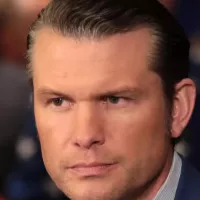
Pete Hegseth is an American author former television personality and...
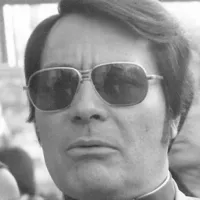
Jim Jones was an American cult leader who founded the...
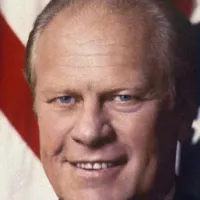
Gerald Ford the th U S President served from -...
Trending
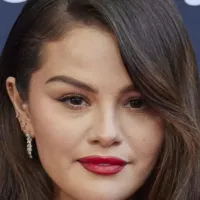
45 minutes ago Selena Gomez's Spiced-Plum Manicure and TikTok Clone Theory Spark Buzz
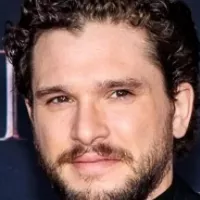
45 minutes ago Kit Harington and Sophie Turner Gag After On-Screen Kiss in New Movie

45 minutes ago Trump administration updates, Iran nuclear efforts, and White House controversies unfold.
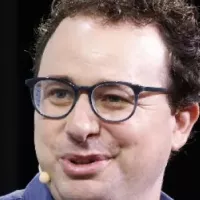
45 minutes ago Dario Amodei Highlights India's Central Role in Shaping AI's Future at AI Summit.
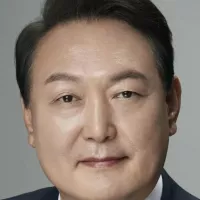
2 hours ago Yoon Suk Yeol, South Korean ex-president, receives life sentence for insurrection and martial law.

4 hours ago Maya Hawke and Christian Lee Hutson celebrated wedding with Stranger Things cast present.
Popular

Jesse Jackson is an American civil rights activist politician and...
Randall Adam Fine is an American politician a Republican who...

Pam Bondi is an American attorney lobbyist and politician currently...

Barack Obama the th U S President - was the...

Martin Luther King Jr was a pivotal leader in the...

Ken Paxton is an American politician and lawyer serving as...